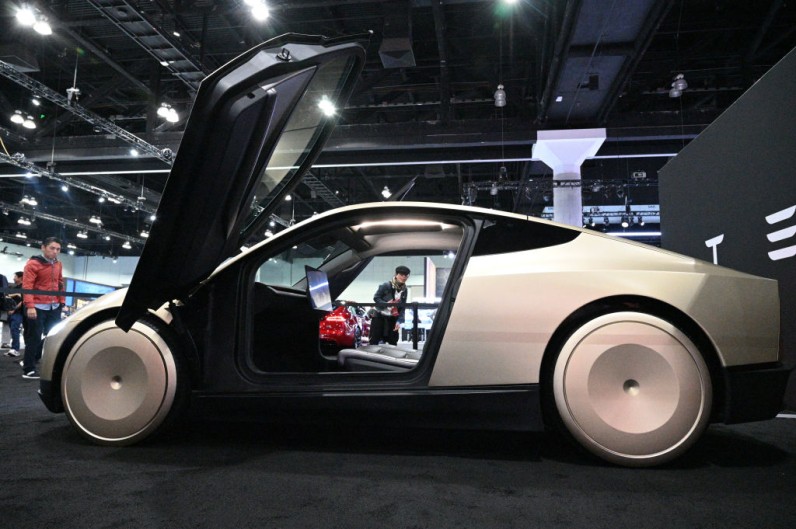
Tesla has officially launched its robotaxi service in Austin, Texas, marking a major step in the company's self-driving journey.
The limited rollout began Sunday, June 23, with a small fleet of electric vehicles operating without human drivers behind the wheel.
Elon Musk, Tesla's CEO, described the moment as the "culmination of a decade of hard work."
Passengers were spotted being picked up in South Congress, Austin, by driverless Teslas, each carrying a safety monitor in the front seat.
According to INC, Musk revealed on X (formerly Twitter) that the ride costs just $4.20, a price that reflects his signature humor and branding.
"This is what rock 'n' roll is all about," Musk wrote, celebrating the achievement. He emphasized that Tesla built both the AI chip and software in-house.
To promote the launch, Tesla invited influencers to test the new service. Tesla investor and social media user Sawyer Merritt posted videos of his experience using the robotaxi to travel to a local restaurant, sparking excitement among fans.
Despite the buzz, experts caution that this is only a small first step. Philip Koopman, a professor at Carnegie Mellon University, said that success in Austin would still leave Tesla far from creating a national or global robotaxi network.
"This is the end of the beginning—not the beginning of the end," he noted.
Tesla Robotaxi is officially live in Austin — full self-driving, no human behind the wheel. This is REAL 🤯 pic.twitter.com/AOzlKfBgi0
— Dima Zeniuk (@DimaZeniuk) June 22, 2025
Read more: Elon Musk Claims Tesla Robotaxi Will Hit Streets This Month: 'Most Important Product' Yet
Texas Requires Permits for Self-Driving Cars Ahead of Tesla Rollout
As the robotaxi program moves forward, new regulations are taking shape. Just two days before the launch, Texas Governor Greg Abbott signed a law requiring permits for companies operating autonomous vehicles.
Starting September 1, the Texas Department of Motor Vehicles will oversee these permits, with the power to revoke them if safety concerns arise.
The law also requires companies to share emergency procedures with first responders, making safety a top priority.
While less strict than California's rules, Texas's new law shows a shift toward more cautious oversight.
Tesla's current rollout avoids risky conditions, such as bad weather or complex intersections, and the cars won't transport passengers under 18, NY Post said.
Musk said Tesla would be "super paranoid" about safety and could delay or adjust operations if needed.
Tesla's robotaxi model differs from competitors like Waymo and Zoox by relying only on cameras instead of more expensive radar or lidar systems.
Musk claims this will make the technology both safer and cheaper in the long run.







Join the Conversation